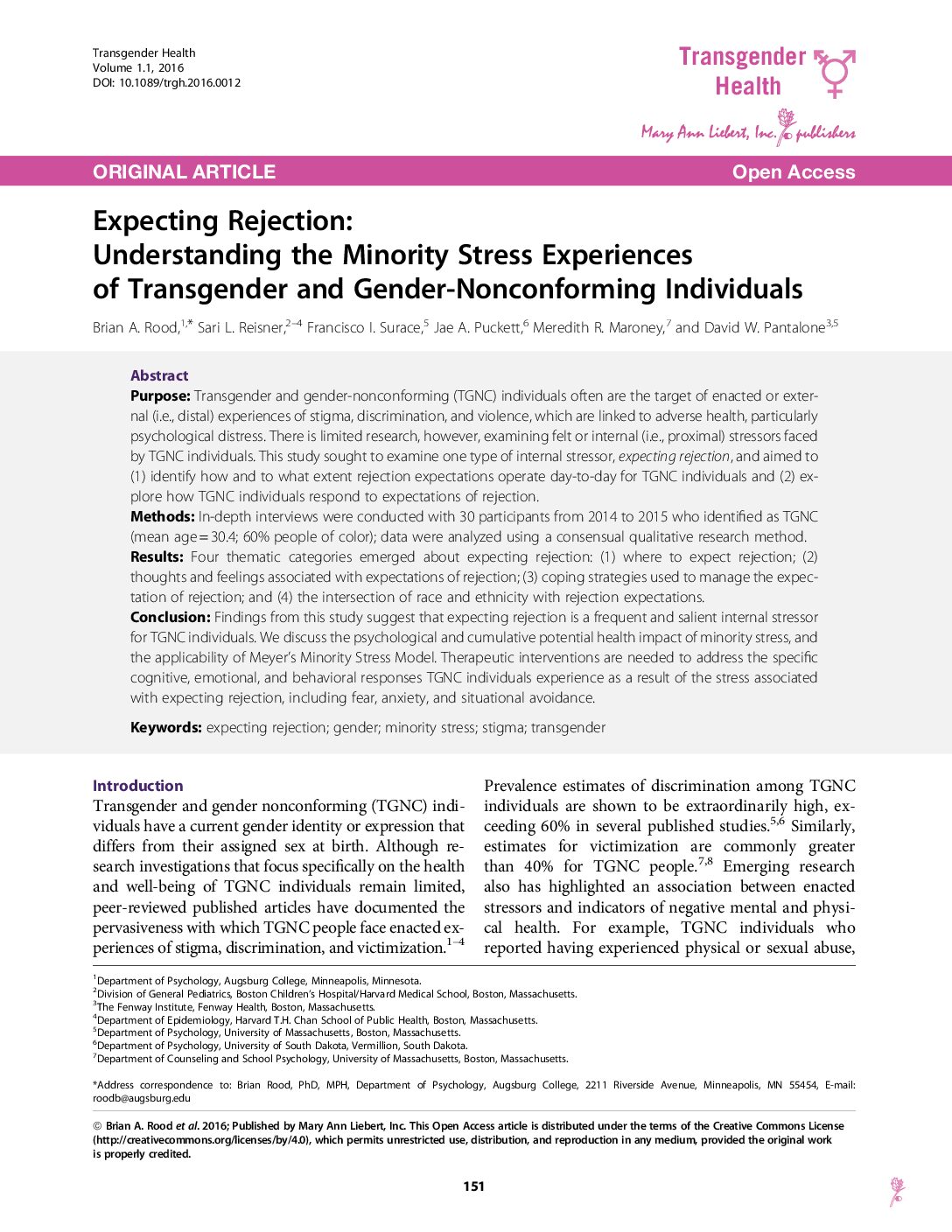Expecting Rejection: Understanding the Minority Stress Experiences of Transgender and Gender-Nonconforming Individuals
September 2016 | Brian A. Rood Sari L. Reisner Francisco I. Surace Jae A. Puckett Meredith R. Maroney and David W. Pantalone
Findings from this study suggest that expecting rejection is a frequent and salient internal stressor for TGNC individuals. We discuss the psychological and cumulative potential health impact of minority stress, and the applicability of Meyer's Minority Stress Model. Therapeutic interventions are needed to address the specific cognitive, emotional, and behavioral responses TGNC individuals experience as a result of the stress associated with expecting rejection, including fear, anxiety, and situational avoidance.
Transgender and gender-nonconforming (TGNC) individuals often are the target of enacted or external (i.e.,distal) experiencesofstigma, discrimination, andviolence,whicharelinked toadversehealth,particularly psychological distress. There is limited research, however, examining felt or internal (i.e., proximal) stressors faced byTGNC individuals.Thisstudysought toexamine one typeofinternal stressor, expecting rejection,andaimed to (1) identify how and to what extent rejection expectations operate day-to-day for TGNC individuals and (2) explore how TGNC individuals respond to expectations of rejection.

